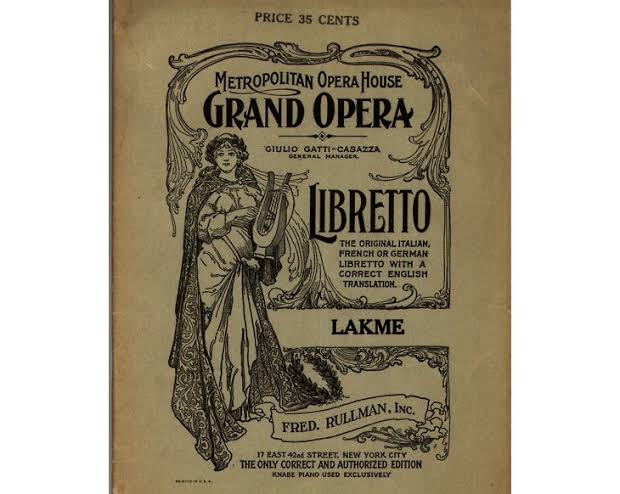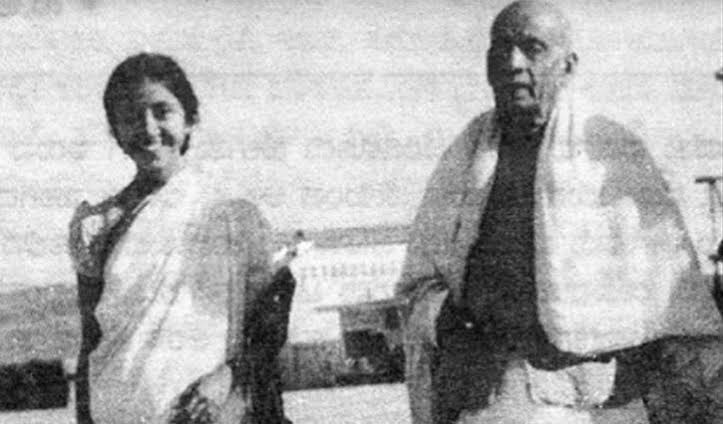Was there a Satya Harischandra in Politics?
Yes, there was One.
On this day in 1964, he took charge as Prime Minister of Bharath.
In this thread 🧵, we will visit the timeline of the last nationalist PM Congress produced.
In his first broadcast as PM on June 11, 1964,
Yes, there was One.
On this day in 1964, he took charge as Prime Minister of Bharath.
In this thread 🧵, we will visit the timeline of the last nationalist PM Congress produced.
In his first broadcast as PM on June 11, 1964,
Adaraneeya Lal Bahadur Shastri said..
“There comes a time in the life of every nation when it stands at the crossroads of history and must choose which way to go. But for us, there need be no difficulty or hesitation, no looking to right or left. Our way is straight and clear—

“There comes a time in the life of every nation when it stands at the crossroads of history and must choose which way to go. But for us, there need be no difficulty or hesitation, no looking to right or left. Our way is straight and clear—


the building up of a secular mixed-economy democracy at home with freedom and prosperity, and the maintenance of world peace and friendship with select nations.”
His tenure was brief, but eventful.
Whatever he achieved & tried to achieve gave effective results and helped in
His tenure was brief, but eventful.
Whatever he achieved & tried to achieve gave effective results and helped in
Nation Building.
I have heard many people say that if he stayed for few more years, Bharath would've become superpower decades ago.
In his book, Patriots and Partisans, RC Guha Writes
“Had Shastri continued as prime minister until the end of the 1960s, the economic history
I have heard many people say that if he stayed for few more years, Bharath would've become superpower decades ago.
In his book, Patriots and Partisans, RC Guha Writes
“Had Shastri continued as prime minister until the end of the 1960s, the economic history
of India would have turned out very differently.
In speeches made in 1965, Shastri clearly indicated that he would like to open up the market to enterprise and free competition."
The Milkman Verghese Kurien recounts a memory in his autobiography,
"LBS was keen to witness
In speeches made in 1965, Shastri clearly indicated that he would like to open up the market to enterprise and free competition."
The Milkman Verghese Kurien recounts a memory in his autobiography,
"LBS was keen to witness
AMUL's success firsthand, requested Kurien to let him stay incognito in one of the villages for the night, Kurien was afraid, but Shastriji convinced him.
Shastriji without his security detail's knowledge.
Left in the village, LBS introduced himself as a traveller who had lost
Shastriji without his security detail's knowledge.
Left in the village, LBS introduced himself as a traveller who had lost
his way.
A family in the village invited Shastri to stay with them. He took the opportunity to talk to them about their lives and how they had been affected by the cooperative.
By the time Kurien came to pick him up the next morning, the PM was not only convinced about the
A family in the village invited Shastri to stay with them. He took the opportunity to talk to them about their lives and how they had been affected by the cooperative.
By the time Kurien came to pick him up the next morning, the PM was not only convinced about the
Anand pattern of cooperatives but put his full might behind Kurien to set up the NDDB in Anand to help replicate the movement across the country.
LBS, was an Accidental Prime Minister, as per Kuldip Nayyar, he was made to sit on PMs chair to keep it warm for Indira.
LBS, was an Accidental Prime Minister, as per Kuldip Nayyar, he was made to sit on PMs chair to keep it warm for Indira.
He inherited a Govt that was slowly recovering from the defeat handed out to India by the Chinese in 1962, shattering Nehru’s long held dictum of ” Hindi Chini Bhai Bhai”.
The economy was in a mess and there was a massive scarcity of food grain.
The year was 1965 & scenario
The economy was in a mess and there was a massive scarcity of food grain.
The year was 1965 & scenario
was an all-out war with Pak
The severity of the 17 day war can be summed up by the statement that it was the largest engagement of armoured vehicles and the largest tank battle since WW II.
LBS decided to cut across party lines, invited Guruji MS Golwalkar for all party meet
The severity of the 17 day war can be summed up by the statement that it was the largest engagement of armoured vehicles and the largest tank battle since WW II.
LBS decided to cut across party lines, invited Guruji MS Golwalkar for all party meet
Purpose was to task the Delhi Police with more strategic activities and relieve them of their routine duties which were then taken over by RSS workers.
Upon Shastri's request, RSS workers also provided food and other essential supplies to soldiers deployed on the war front.
Upon Shastri's request, RSS workers also provided food and other essential supplies to soldiers deployed on the war front.
LBS in Loksabha made this speech before the war
“In the utilization of our limited resources, we have always given primacy to plans & projects for economic development.
It would, therefore, be obvious for anyone who is prepared to look at things objectively that India
“In the utilization of our limited resources, we have always given primacy to plans & projects for economic development.
It would, therefore, be obvious for anyone who is prepared to look at things objectively that India
can have no possible interest in provoking border incidents or in building up an atmosphere of strife…
In these circumstances, the duty of Govt is quite clear, and this duty will be discharged fully and effectively…
We would prefer to live in poverty for as long as necessary
In these circumstances, the duty of Govt is quite clear, and this duty will be discharged fully and effectively…
We would prefer to live in poverty for as long as necessary
but we shall not allow our freedom to be subverted,”
The infiltration bid was foiled and India emerged victorious.
Shastri, whose 19-month prime ministership was hemmed between Nehru and Indira Gandhi, has, without doubt, not got the space he deserved in public memory.
The infiltration bid was foiled and India emerged victorious.
Shastri, whose 19-month prime ministership was hemmed between Nehru and Indira Gandhi, has, without doubt, not got the space he deserved in public memory.
From calming the violent anti-Hindi agitation to taking the first steps in resolving India’s biggest food shortage by promoting the Green Revolution (and convincing people to voluntarily give up one meal) LBS also oversaw India’s first major shift away from Nehru’s socialist
economic policies based on central planning.
Shastri was way ahead of his times as far as economic policy goes. His pragmatism would have helped put us on the path of high growth at least two decades earlier.
The US ambassador to India during that time Chester Bowles said
Shastri was way ahead of his times as far as economic policy goes. His pragmatism would have helped put us on the path of high growth at least two decades earlier.
The US ambassador to India during that time Chester Bowles said
“Shastri was an extra ordinary man.’ He divided the Indian leaders into Adams and Jacksonians. The Adams were the ones educated in UK/USA. These people according to him were not thoroughly Indian. They had one foot in Asia and one foot in Europe.
Shastri was a Jacksonian,
Shastri was a Jacksonian,
he had roots in India, he had more faith in the Jacksonians for the future".
Shastri’s reformist credentials were also evident from his economic team,
S Bhoothalingham, Dharma Vira, I G Patel and L K Jha – believed in the urgent need to unshackle the economy and go in for
Shastri’s reformist credentials were also evident from his economic team,
S Bhoothalingham, Dharma Vira, I G Patel and L K Jha – believed in the urgent need to unshackle the economy and go in for
reforms to realise the potential of the Indian economy by modernising agriculture and allowing the private sector to operate with relative freedom from controls.
Winds of change were also felt in some decisions of the government under Shastri.
In August 1965, LBS announced in
Winds of change were also felt in some decisions of the government under Shastri.
In August 1965, LBS announced in
Parliament that govt controls over economic activity would be reconsidered. Soon thereafter, regulations for sectors such as steel and cement were relaxed.
He wore no ideological blinkers; he saw facts as they were in all their starkness. Chronic food shortages made him shift
He wore no ideological blinkers; he saw facts as they were in all their starkness. Chronic food shortages made him shift
investment from basic industries to agriculture. Roaring black markets persuaded him to make a relative shift from controls to incentives, and the glaring inefficiency of the public sector made him accept a larger role for the private sector and foreign investment.
He also took
He also took
measures to shift the locus of economic decision making from the Planning Commission (PC) to the ministries and from the Centre to the states.
This reduced the influence of PC which had developed a rigid outlook on economic policies—and also decentralized decision-making."
This reduced the influence of PC which had developed a rigid outlook on economic policies—and also decentralized decision-making."
LBS even ordered a review of all major public sector projects which had not taken off by then.
What happened subsequently is well known. Indira responded to the economic crisis with a sharp turn to the Left, choosing populism over economic reform.
It is a pity that Shastri
What happened subsequently is well known. Indira responded to the economic crisis with a sharp turn to the Left, choosing populism over economic reform.
It is a pity that Shastri
died prematurely without implementing most of his ideas on economic reforms, deregulation & decentralisation.
But it is a national shame that nobody remembers Shastri for having dared to usher in those reforms at that time.
When he died his life sheet was spotlessly clean.
But it is a national shame that nobody remembers Shastri for having dared to usher in those reforms at that time.
When he died his life sheet was spotlessly clean.
He left no money, no house and no land. The only thing he left, apart from a shining reputation, was a small, outstanding loan from his bank.
#JaiJawanJaiKisan
#VANDEMATARAM
#JaiJawanJaiKisan
#VANDEMATARAM
• • •
Missing some Tweet in this thread? You can try to
force a refresh

 Read on Twitter
Read on Twitter















